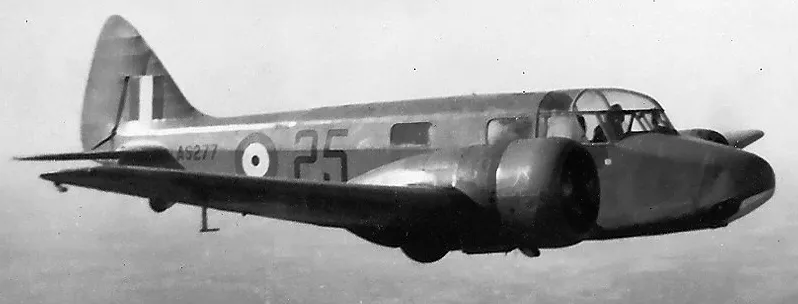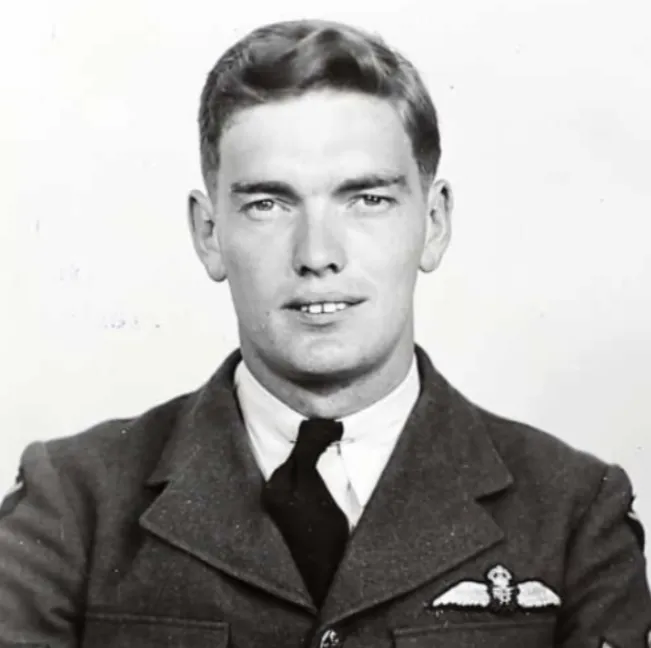Rash, Franklin L (Leading Aircraftman)
Killed in Flying Accident 1942-09-13


Birth Date: 1921-August-23
Born: Long Branch, New Jersey
Son of Maj. Franklyn and Ruth Rash, of Fort Benning, Georgia.
Home: Fort Benning, Georgia, USA
Enlistment: Toronto, Ontario
Enlistment Date: 1941-09-24
Service
RCAF
Unit
CTS
Base
Rank
Leading Aircraftman
Position
Leading Aircraftman
Service Numbers
R/133798
This incident involved multiple aircraft:
- Oxford Mk. II Serial: BG297
- Harvard Mk.IIB Serial: 3106
All the above aircraft in the above list are referenced in this report.
Oxford BG297
Airspeed Oxford

Airspeed A.S. 10 Oxford Mk. II, RCAF (Serial No. AS277), 25, in flight over Saskatchewan, 1942.
The Airspeed AS.10 Oxford was a twin-engine monoplane aircraft developed and manufactured by Airspeed. It saw widespread use for training British Commonwealth aircrews in navigation, radio-operating, bombing and gunnery roles throughout the Second World War.
The Oxford was developed by Airspeed during the 1930s in response to a requirement for a capable trainer aircraft that conformed with Specification T.23/36, which had been issued by the British Air Ministry. Its basic design is derived from the company's earlier AS.6 Envoy, a commercial passenger aircraft. Performing its maiden flight on 19 June 1937, it was quickly put into production as part of a rapid expansion of the Royal Air Force (RAF) in anticipation of a large-scale conflict.
As a consequence of the outbreak of war, many thousands of Oxfords were ordered by Britain and its allies, including Australia, Canada, France, New Zealand, Poland, and the United States. Following the end of the conflict, the Oxford continued to achieve export sales for some time, equipping the newly formed air forces of Egypt, India, Israel, and Yugoslavia. It was considered to be a capable trainer aircraft throughout the conflict, as well as being used a general-purpose type. A large number of Oxfords have been preserved on static display.Wikipedia
Oxford BG297
Oxford Mk. II BG297
1942-03-24 Taken on Strength 2022-02-07
1942-September-13 Accident: Conversion Training Squadron Loc: Richmond Ontario Names: Cussion | Dean | Patterson | Rash | Shanks
1942-12-09 Struck off Strength 2022-02-07
Harvard 3106
Harvard Mk.IIB 3106
Category A damage on 13 September 1942 while with No. 13 Service Flying Training School at St. Hubert, Quebec. Mid air colllision with Oxford BG297.1941-10-01 Taken on Strength 2019-08-20
1941-October-20 Accident: 13 Service Flying Training School Loc: Aerodrome Names: Living | Stevenson
1942-September-13 Accident: Conversion Training Squadron Loc: Richmond Ontario Names: Cussion | Dean | Patterson | Rash | Shanks
1942-12-09 Struck off Strength 2019-08-20
1943-March-24 Accident: 13 Service Flying Training School Loc: Aerodrome Names: Bush | Harker
 Fort Benning, Georgia, USA
Fort Benning, Georgia, USA Canadian Virtual War Memorial
Canadian Virtual War Memorial



 Oxford Trainer
Oxford Trainer Wikipedia Oxford Trainer
Wikipedia Oxford Trainer Harold A Skaarup Web Page
Harold A Skaarup Web Page